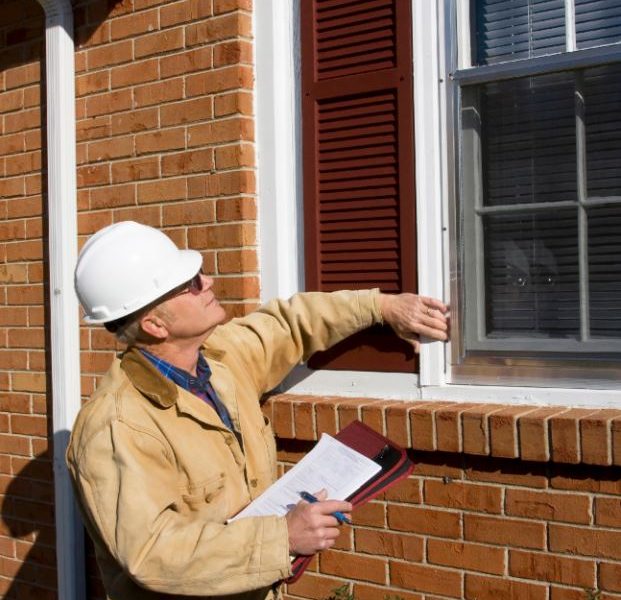What you need to know about the Overseas Investment Act changes?

How do the changes to the Overseas Investment Act affect me?
The implications of the Overseas Investment Amendment Act 2018 (“Act”) have been widely discussed and, in particular, its effect on ‘overseas persons’ acquiring residential property in New Zealand. As of 22 October 2018, new laws prevent certain overseas persons from acquiring residential property in New Zealand.
The Act will not apply to transactions entered into before 22 October 2018.
Residential Land
The new laws apply to land that is categorised as ‘residential’ or ‘lifestyle’ under the District Valuation Roll.
Overseas Persons
An ‘overseas person’ means a person who is neither a New Zealand citizen nor ‘ordinarily resident in New Zealand’. A person is ‘ordinarily resident in New Zealand’ if they:
- hold a residence class visa; and
- have lived in New Zealand for the last 12 months; and
- have been present in New Zealand for at least 183 days in the last 12 months; and
- are a New Zealand tax resident.
The restrictions do not apply to citizens or permanent residents of Australia or Singapore who live in New Zealand.

Overseas Investment Office Consent
The new laws are not a complete ban on overseas persons acquiring residential property in New Zealand, but (subject to certain exemptions) such acquisitions will now require the consent of the Overseas Investment Office (“OIO”).
There are some exemptions from the requirement to obtain OIO consent, such as if an overseas person acquires an apartment ‘off the plan’ within a multi-storey development of 20 or more apartments. Developers of these properties can apply to the OIO for an exemption to sell a certain percentage of such properties to overseas purchasers.
Eligibility Statement
Another change under the new laws is that every person acquiring residential land will be required to complete a Residential Land Statement form which can be provided by a conveyancer (usually a lawyer). It is an offence to make a false or misleading statement and the penalties are significant.
Get more than a first impression from open homes
Open homes give you a great first impression of a property and you’ll know almost immediately if it’s one you want to pursue. But that first visit can be much more than a “once over lightly” impression. How do you make sure you’re getting as much information from it as possible.
Use the time to perform a thorough first property inspection. Later on, you’ll want to engage professionals to inspect the building’s structure and health, but it’s a good idea to use your initial tour of the home to see some things for yourself.

The structure
When inspecting a property, chances are the current owners are going to present the interior of the property in the best possible light. They will have cleaned and tidied, perhaps added a new coat of paint, or even had the home styled with beautiful furniture. Whilst these things will help you to appreciate what the home could look like for you, at this stage, it’s more important to focus on the dwelling’s structure.
Look for
1. Damage from pests. Recent termite damage in wooden structures is a huge red flag. Have a look for bores through wooden frames, or dirt tubes in the foundation or exterior walls that hint to borer infestation.
2. Poor construction. Windows and doors that jar, or cracks in the walls around doors and windows are both signs of poor construction.
3. Wet spots on walls or ceilings. Condensation within the home can lead to mould build-up, timber decay, leaks, corrosion and even loss of structural integrity.
4. Cracks in the foundation. Some small cracks in a home’s foundation can be harmless, but large cracks either running down the foundation or across could mean a home is shifting, which can cause significant structural damage over time.
If you see anything through this process make a note of it, and make sure to mention it when you have a professional building inspector go through the property.

The location
Location means more than the general neighbourhood. You may be attracted to the area, but take a look at the property’s exact location for things that may bother you over the long-term, hurt re-sale value, or cause lifestyle issues.
1. Is it on a busy main road? Houses on main roads can attract lower prices than those on quieter, private and less congested roads. You’ll also have to get used to the noise of heavy traffic.
2. Is it next to a retail or commercial space. This can create high levels of traffic and additional noise, depending on the type of business and its operating hours. Also be mindful of properties next to land that may be zoned as retail or commercial. Talk to your sales consultant about what zoning around the property means for potential development.
3. Is the property near railway lines? A home close to public transport is always convenient, but a home that shares a border with a train line, for example can cause a lot of excess noise, potentially hurt re-sale value, and cause safety issues for young family members depending on fencing around the property.
4. Are there power lines over the land/property? Sometimes found on larger parcels of land, power lines have been known to drop property prices.
5. Is the property on a flood plain? Depending on the city, the climate and the proximity to dams, lakes and watercourses, the potential of flooding on the property will be different. Be aware that houses within the same street can be impacted differently by flood waters. If you have concerns talk to you sales consultant, property inspector and the local council.

The surroundings
1. Take note of the neighbouring properties on each adjoining border for any clues you might not be comfortable long term.
2. Are the neighbours’ yards neat and tidy? It might not directly impact on the property you’re considering, but what about when it comes time to sell the property? Would untidy yards next to yours reflect poorly on the area?
3. Do they have pets? It might not be an issue, particularly if you have pets of your own. But look for problem pets. Is a neighbour’s dog barking non-stop during the inspection? Are animals loose or roaming? Is there evidence of pet damage to shared fences or common areas?
4. Do you have a comfortable level of privacy? Take a look at different angles around the home, particularly on smaller blocks or apartments. Are you too close to neighbours? Can you easily hear them through the walls? Are certain windows placed directly opposite a neighbour’s window? Is the property fenced off from neighbours?

It’s important to remember that none of these things always have to be immediate deal breakers on a property you’re interested in. It’s about arming yourself with as much information as possible so you can make an informed decision and end up with a property you are happy with, for an amount you feel is reasonable.
Once you have made your first visit and if you decide you wish to proceed in making an offer, seek good legal, building and financial advice from the experts.
Choose your property investment strategy
Having goals in place is a great start, now what is your strategy for achieving them?
There are many different property investing strategies you can follow, which include:

1. Purchasing at a discount
This strategy involves purchasing investment properties below valuation. The valuation is the amount the bank and lenders see as the property’s value. If purchased below valuation you immediately create equity – the difference between the current market value of the property and the amount owing on the mortgage.
2. Positive cash flow
Positive cash flow investing is contrasted with negative gearing, this is when the income returns do not offset holding costs, and the investor uses the tax treatment of loses to their advantage. Proponents of the positive cash flow strategy point to the advantages of owning income-generating assets. Some benefits of the cash flow strategy include:
3. Having access to a monthly income stream
Cash flow properties can balance your portfolio as the extra cash can be used to pay the shortfall that may be associated with holding properties with high capital growth potential. Positive cash flow properties can increase your serviceability and can make you more attractive to lenders.


4. Sub-division
Sub-division is dividing an existing area of land into more segments with individual titles, allowing separate properties to be built on the new segments. This works on the principle the split pieces of land are worth more than the single lot.
5. Off-the-plan
Purchasing property off-the-plan means entering a contract to buy the property before or during its construction. However, you won’t be able to inspect the finished property until construction is complete. Property investors can put down a deposit and speculate that the market will rise before they actually need to settle on the property – meaning there is potential to obtain capital growth over the settlement period.
6. Renovation
The renovation strategy is adding value by improving a property’s condition or adding new features. The key is targeting properties with potential that you make improvements and add value to, for the type of buyer or tenant looking to reside in that area. Look for poorly presented investment property below the suburb median price that you can add value to.
10 Mistakes Property Investors Make
Some of New Zealand’s top property investment experts say there are a number of common mistakes Kiwi landlords keep making. Whether you’re a new investor or have a few properties in your portfolio, avoiding these pitfalls will help you reach your goals more quickly.
1. Not doing the numbers
Property consultant Lisa Dudson, author of The New Zealand Property Guide, has seen many people spend hundreds of thousands of dollars on a property without first doing any analysis of the deal. “They don’t think about what the cash flow will be, what the deal will do for their financial positions, whether it will be positive or negative, or what other costs will be included.”
There are a lot of active people in the market, and many of those people do not know the difference between the gross yield of a property – a basic calculation of the rent coming in as a percentage of the purchase price – and the net yield – what they would earn after all the costs were taken into account.
Costs could easily make the difference between a purchase being a good opportunity or a long-term drain on finances. Property commentator Olly Newland said he often encountered people who were stuck in “empire building” mode. “They get carried away by the number of properties they own and think they are the emperor of a kingdom or something, but the properties are producing no income.”

2. Not understanding the risks
People get tripped up by their belief that property prices only ever go up. Dudson said it was important for property investors to know there were risks. “Most can be minimised but you have to know what they are.”
She said one example was leverage, which boosts returns when used well. Property investors have access to much more leverage than investors in many other asset classes. Investors purchasing outside Auckland can buy a $500,000 property with just $100,000 deposit and benefit from the gains of the full $500,000 investment. If prices move up 5 per cent in a year, their $100,000 deposit becomes equity of $125,000, rather than just $105,000 if there was no leverage. But leverage also intensifies risk. If prices dropped 10 per cent, the house would be worth $450,000 and half their initial deposit and equity would be gone.
3. Not getting advice
Property investors can avoid mistakes by learning from those who have already seen others make them. Dudson said all property investors should have an accountant with experience in property investment, a property mentor or a financial adviser to talk to. Local property investors associations can be help. Dudson said it was important to have a plan and review it regularly. “I see people cross their fingers and hope everything will be fine. You need to be constantly looking at what you are doing and why.” David Whitburn, director of Fuzo Property said those who were getting started should talk to a lawyer and accountant to get the right ownership structure in place. He said many people bought properties in trusts when they did not need to, or had look-through companies when they should have bought as a partnership. “Trusts are great for asset protection but bad for tax efficiency. If the property is making losses, they get stuck there.”
4. Thinking finance is just about getting a loan
Getting the money in the bank to buy a property is the easy bit, Dudson said. Many people did not think about how they structured their mortgages, whether they should be principal and interest, interest only, or revolving credit. She said a mortgage broker with property investment advice would help. Whitburn said revolving credit accounts were good for property investors because rent payments could come in and immediately offset the interest accruing on a loan. “It’s better than having the money in a cheque account and having to sweep it across.
But some people have a look-through company with a revolving credit account and they go out using it for groceries or a ski trip, when they are audited or it comes to tax time, it’s an absolute nightmare.” He suggested investors fix parts of their loans on different terms, such as some floating, some fixed for a year, two years and three years, so they would come up for renewal at staggered intervals. “It smooths out the interest expense and means you can avail yourself of opportunities when low interest rates are offered.” Newland cautioned against borrowing too heavily on your own home. “You shouldn’t borrow more than the rent from the property will cover.”

5. Not managing the property well
Dudson said few investors were capable of managing their own properties. Many would end up not putting rents up often enough or not knowing how to deal with problem tenants. “You hear ‘they’re such a nice person…’ but then the tenant doesn’t pay, you get caught and before you know it you’re $3000 in arrears.” Whitburn said investors should ensure they had enough money aside to cover repairs and maintenance, and keep on top of it. “Don’t skimp because you end up with worse tenants and it leaves you losing money and time, it costs more in the long run.”
6. Not doing due diligence
Whitburn has seen investors buy leaky buildings, paying full market price, or buy leasehold properties not understanding the terms of the lease. People also needed to understand the body corporate agreements of any properties they bought and any potential problems that could arise. “I see people bidding too much at auction, they let their emotions get in the way because they have been looking for six months and never get there so they don’t set a maximum they will bid, they just want to win it.”
7. Only being interested when the market is hot
A lot of people decide to become property investors when house prices are rising. Dudson said that was the wrong approach to take. “In reality, you should have been buying three or four years ago. When it is doom and gloom, that is when you should be buying.”
8. Not understanding the difference between a home and an investment property
Just because you own your own home, do not assume you know enough about property to become a landlord. Your purchase will need to be driven by things such as the numbers, the ongoing maintenance required of the property and the local rental market – not how attractive the garden or kitchen is. And that old adage about only buying investment properties you would want to live in yourself? Dudson says it is mad. “I doubt I’d live in any of the investment properties I own because they aren’t where I want to live, how I want to live.”

9. Believing property investment will solve all your financial problems
Dudson said many investors had too simplistic an outlook. “Just because you own property, it doesn’t mean you will automatically be wealthy and be able to retire comfortably.” She said it was important not to expect to be able to make a lot of money overnight by doing nothing. “People get caught up in how much money they can make and don’t realise the amount of work you have to put in.”
10. Buying in the wrong location
Whitburn says he is still dealing with people who bought properties at the peak of the last boom in parts of New Zealand where prices have not yet recovered. “Make sure you are not over-exposed to towns. They can have big upswings if industry or infrastructure is put there but it is not a sure bet.” Tokoroa is a popular investment spot because investors can buy properties for $100,000 but Whitburn expected the capital gains to be limited. “Somewhere that costs $75,000 and rents for $200 a week looks like a good yield until you consider that it might not be tenanted 52 weeks a year because it could be heard to find tenants. “Insurance costs the same as in a bigger town, repair costs are higher and there are no economies of scale in rates. If interest rates rise, your property can become cashflow neutral or negative quite quickly.” He urged investors to look for places where there was population growth, infrastructure and employment. “You’ve got to invest in those locations for growth. It helps people get the next deposit and keeps cashflow robust.”
Sourced from www.stuff.co.nz
